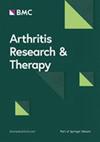Association of anti-HMGCR antibodies of the IgM isotype with refractory immune-mediated necrotizing myopathy
IF 4.9
2区 医学
Q1 Medicine
引用次数: 0
Abstract
Anti-3-hydroxy-3-methylglutaryl-coenzyme A reductase (HMGCR) autoantibodies are one of the myositis-specific antibodies which is associated with immune-mediated necrotizing myopathy (IMNM). However, the relationship between anti-HMGCR isotypes and prognosis has not yet been fully investigated. This study was conducted to gain insight into the association between anti-HMGCR isotypes and clinical, and prognosis in IMNM patients who were positive for anti-HMGCR antibodies. Levels of anti-HMGCR isotypes (IgG, IgA and IgM) were assessed by enzyme-linked immunosorbent assay (ELISA) in 123 consecutive serum samples obtained from 71 patients who were positive for anti-HMGCR IgG at baseline. Disease activity was assessed by manual muscle testing (MMT) 8, Physician’s Global Assessment (PGA) visual analog scale (VAS), and muscle VAS. Baseline anti-HMGCR IgG levels were correlated with PGA VAS (r = 0.24; p = 0.04), muscle VAS (r = 0.32; p < 0.01), and MMT8(r=-0.24; p = 0.04), and baseline anti-HMGCR IgM levels were positively correlated with PGA VAS (r = 0.27, p = 0.02), muscle VAS (r = 0.24, p = 0.04). Anti-HMGCR IgM positive patients had a lower age of onset [29(25,46) vs. 51(33,65), p = 0.006], and a higher proportion of neck weakness (63.5% vs. 34.6%, p = 0.031) compared with anti-HMGCR IgM negative patients. Longitudinal analysis showed that the changes in anti-HMGCR IgG levels were correlated with the changes in the PGA VAS (β = 3.830; p < 0.0001), muscle VAS (β = 2.893; p < 0.0001), MMT8 (β=-19.368; p < 0.0001), and creatine kinase (CK) levels (β = 3900.05, p < 0.0001). Anti-HMGCR IgM levels were weakly correlated with anti-HMGCR IgA levels at baseline (r = 0.33, p < 0.01), and the variations in anti-HMGCR IgA levels were correlated with the changes in anti-HMGCR IgM levels during follow-up (β = 0.885; p < 0.0001). There were more patients with anti-HMGCR IgM who showed a refractory course than those who were with anti-HMGCR IgM negative (polycyclic course: 40% vs. 25%; chronic continuous course: 46.7% vs. 20.5%, p = 0.018). In anti-HMGCR IgG-positive IMNM patients, the levels of anti-HMGCR IgG are associated with disease activity, and anti-HMGCR IgM is associated with refractory outcome and poor prognosis. • Anti-HMGCR IgM-positive patients had a younger age of onset and more neck weakness than anti-HMGCR IgM-negative patients. • The levels of anti-HMGCR IgG and IgM are associated with disease activity in anti-HMGCR-positive patients. • Anti-HMGCR IgM is associated with refractory outcome and poor prognosis.IgM 同工酶型抗 HMGCR 抗体与难治性免疫介导的坏死性肌病的关系
抗-3-羟基-3-甲基戊二酰辅酶 A 还原酶(HMGCR)自身抗体是肌炎特异性抗体之一,与免疫介导的坏死性肌病(IMNM)有关。然而,抗HMGCR同型抗体与预后之间的关系尚未得到充分研究。本研究旨在深入了解抗-HMGCR抗体阳性的IMNM患者的抗-HMGCR异型与临床和预后之间的关系。研究人员通过酶联免疫吸附试验(ELISA)评估了 71 名基线抗 HMGCR IgG 阳性患者的 123 份连续血清样本中抗 HMGCR 同型抗体(IgG、IgA 和 IgM)的水平。疾病活动性通过人工肌肉测试 (MMT) 8、医生总体评估 (PGA) 视觉模拟量表 (VAS) 和肌肉 VAS 进行评估。基线抗 HMGCR IgG 水平与 PGA VAS(r = 0.24;p = 0.04)、肌肉 VAS(r = 0.32;p < 0.01)和 MMT8(r =-0.24;p = 0.04)相关,而基线抗 HMGCR IgM 水平与 PGA VAS(r = 0.27,p = 0.02)、肌肉 VAS(r = 0.24,p = 0.04)呈正相关。与抗-HMGCR IgM 阴性患者相比,抗-HMGCR IgM 阳性患者的发病年龄较低 [29(25,46) vs. 51(33,65), p = 0.006],颈部无力的比例较高 (63.5% vs. 34.6%, p = 0.031)。纵向分析显示,抗-HMGCR IgG 水平的变化与 PGA VAS(β=3.830;p <0.0001)、肌肉 VAS(β=2.893;p <0.0001)、MMT8(β=-19.368;p <0.0001)和肌酸激酶(CK)水平(β=3900.05;p <0.0001)的变化相关。抗 HMGCR IgM 水平与基线抗 HMGCR IgA 水平呈弱相关(r = 0.33,p < 0.01),随访期间抗 HMGCR IgA 水平的变化与抗 HMGCR IgM 水平的变化呈相关(β = 0.885;p < 0.0001)。与抗-HMGCR IgM 阴性患者相比,抗-HMGCR IgM 患者中出现难治性病程的人数更多(多环病程:40% 对 25%;慢性持续病程:46.7% 对 20.5%,p = 0.018)。在抗-HMGCR IgG 阳性的 IMNM 患者中,抗-HMGCR IgG 水平与疾病活动性相关,而抗-HMGCR IgM 与难治性结果和不良预后相关。- 与抗-HMGCR IgM 阴性患者相比,抗-HMGCR IgM 阳性患者的发病年龄更小,颈部更无力。- 抗-HMGCR IgG 和 IgM 的水平与抗-HMGCR 阳性患者的疾病活动性有关。- 抗-HMGCR IgM与难治性结果和不良预后有关。
本文章由计算机程序翻译,如有差异,请以英文原文为准。
求助全文
约1分钟内获得全文
求助全文
来源期刊

Arthritis Research & Therapy
RHEUMATOLOGY-
CiteScore
8.60
自引率
2.00%
发文量
261
审稿时长
14 weeks
期刊介绍:
Established in 1999, Arthritis Research and Therapy is an international, open access, peer-reviewed journal, publishing original articles in the area of musculoskeletal research and therapy as well as, reviews, commentaries and reports. A major focus of the journal is on the immunologic processes leading to inflammation, damage and repair as they relate to autoimmune rheumatic and musculoskeletal conditions, and which inform the translation of this knowledge into advances in clinical care. Original basic, translational and clinical research is considered for publication along with results of early and late phase therapeutic trials, especially as they pertain to the underpinning science that informs clinical observations in interventional studies.
 求助内容:
求助内容: 应助结果提醒方式:
应助结果提醒方式:


